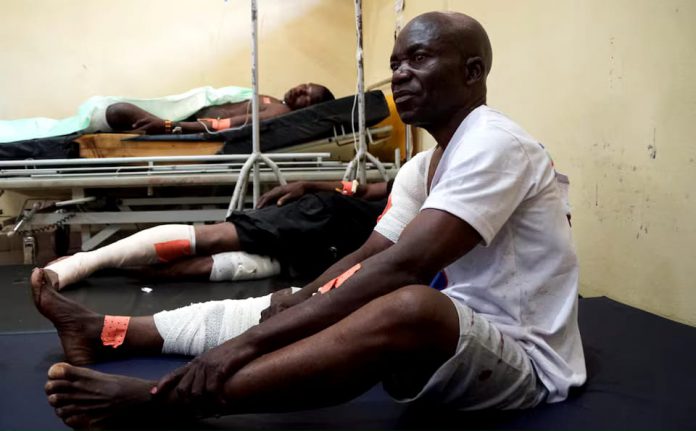Rebel leader Corneille Nangaa on Thursday confirmed that an explosion at a rally held by M23 rebels in the eastern Democratic Republic of Congo city of Bukavu killed 11 people and wounded 65 others.
He said the grenades used on Thursday were the same type as used by Burundi’s army in Congo.
The incident risked further escalating the war in the mineral-rich east of the Democratic Republic of Congo, which has already drawn in several neighbouring countries.
Burundi has had soldiers in eastern Congo for years, initially to hunt down Burundian rebels there, but more recently, to aid in the fight against M23.
Burundian army spokesperson Brigadier General Gaspard Baratuza condemned the attack.
He said on X there were no Burundian soldiers in Bukavu, but did not specifically address Nangaa’s claim about the grenades.
The rebels have been advancing through the east of the country since the start of the year, seizing Bukavu and the region’s largest city Goma.
After the blast in Bukavu, people ran through the streets, some carrying the wounded.
A medical source said 68 people were being treated for injuries at the city’s general hospital. Witness Musanga Tambwe described hearing two loud explosions.
“A plastic bag was thrown in front of us… We didn’t know what was inside. We were just looking at it. Suddenly, there was an explosion. Poof! We fell to the ground and ran away,” said Tambwe, who was later treated for wounds at the hospital.
Nangaa said that he was not wounded and other senior members of the rebel grouping were safe.
Congo, the U.N. and Western powers say neighbouring Rwanda is backing M23 – accusations Rwanda denies.
Rwanda has said it is defending itself against the threat from a Hutu militia, which it says is fighting with the Congolese military.
M23 has been trying to demonstrate that it can restore order in the territory it has captured from Congo’s army, and has re-opened ports and schools.
This M23 advance is the gravest escalation in more than a decade of the long-running conflict in eastern Congo, rooted in the spillover of Rwanda’s 1994 genocide into Congo and the struggle for control of Congo’s vast mineral resources.










